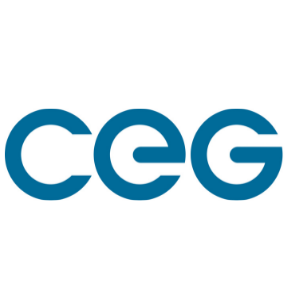Producers and consumers need to cooperate to maintain global gas supply security in light of escalating geopolitical tensions, as highlighted in a new IEA report. The demand for natural gas is growing faster in 2024 compared to the past two years, which were significantly impacted by the global energy crisis. However, the availability of new gas supplies is not keeping pace, mainly because of limited growth in LNG production, which—combined with ongoing geopolitical challenges—continues to drive price instability, according to the IEA’s latest assessment of global gas markets.
The IEA projects that global gas demand will increase by over 2.5% in 2024, with a similar growth rate expected in 2025. Much of this demand surge comes from expanding markets in Asia, as well as a recovery in Europe’s industrial gas usage, although it still hasn’t returned to pre-crisis levels. These findings are detailed in the IEA’s annual Global Gas Security Review, which also incorporates insights from the latest quarterly Gas Market Report.
IEA Director of Energy Markets and Security, Keisuke Sadamori, noted that the current growth in global gas demand indicates a gradual recovery from the recent energy crisis, but the supply-demand balance remains precarious. He stressed the need for collaboration between producers and consumers to manage this period of uncertainty effectively, while also advancing clean energy initiatives for a secure and sustainable future.
The report points out that gas markets are highly reactive to unexpected changes in supply or demand. LNG has taken on a larger role in the global gas trade since the energy crisis began and will likely continue to be key in balancing global supply and demand. Constraints in transit routes like the Panama Canal and the Red Sea are currently affecting shipping logistics, though they haven’t led to a reduction in LNG supply so far. These constraints underline the vulnerabilities that could affect LNG trade in the increasingly interconnected gas market. In 2025, LNG supply growth is expected to accelerate, nearing 6%, as major LNG projects—primarily in North America—become operational. Additional capacity is also anticipated from new projects in Africa and Asia.
A significant point of uncertainty for the winter of 2024-25 in the Northern Hemisphere is the future of Russian gas transit via Ukraine, as existing contracts are set to expire at the end of 2024. If these contracts are not renewed, it could mean a complete cessation of Russian piped gas deliveries to Europe through Ukraine. This situation would likely lead to increased LNG imports by Europe in 2025, tightening the global gas supply even further. The IEA suggests enhancing flexibility mechanisms along gas and LNG supply chains to address these challenges. This could involve improving the liquidity of the global LNG market, integrating Ukrainian gas storage into the broader market, and exploring frameworks for voluntary gas reserves.
The 2024 edition of the Global Gas Security Review also includes a special focus on integrating low-emissions gases into the transport sector, a topic that is part of the IEA’s broader Low-Emissions Gases Work Programme.
Beyond its analysis of global gas markets, the IEA is also engaged in collaborative efforts with governments worldwide to ensure the security of supply. Since its inception in October 2022, the IEA’s Task Force on Gas and Clean Fuels Market Monitoring and Supply and Security has played a crucial role in providing market updates and facilitating the exchange of information among member countries. The Task Force has also partnered with the Japanese government in preparation for the 13th LNG Producer-Consumer Conference, co-organised by the IEA and Japan’s Ministry of Economy, Trade and Industry.
The latest IEA report underscores the importance of cooperation between gas producers and consumers to manage the complex interplay of rising demand, limited supply growth, and geopolitical risks. By working together and advancing clean energy solutions, there is potential to create a more stable and sustainable future for global energy markets.
Diversified Energy Company plc (LON:DEC) is an independent energy company engaged in the production, marketing, transportation and retirement of primarily natural gas and natural gas liquids related to its U.S. onshore upstream and midstream assets.


